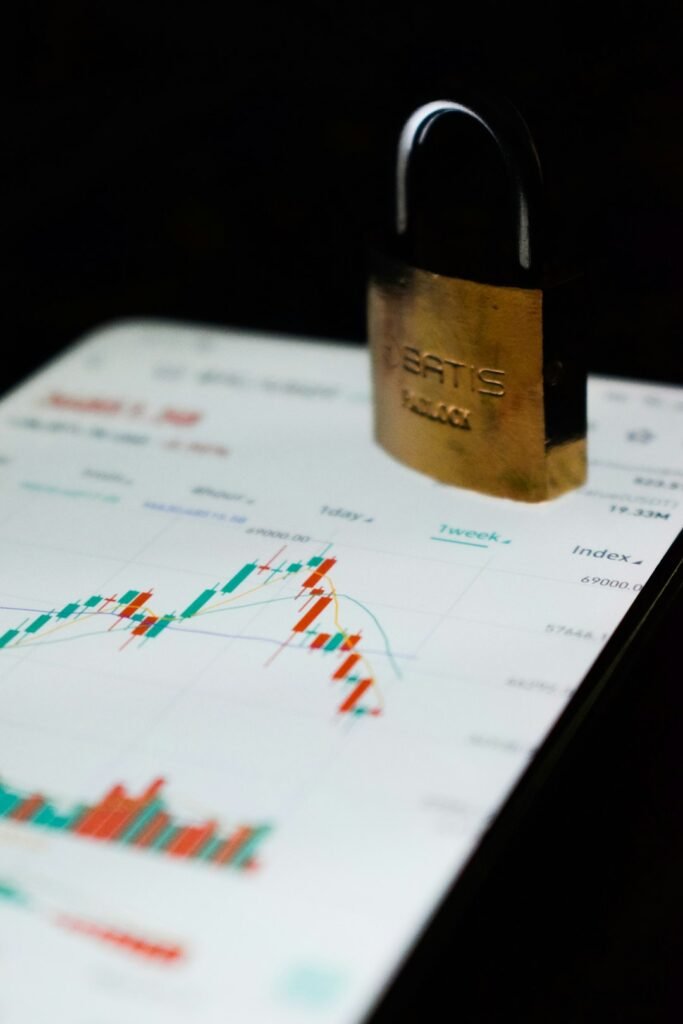The Ultimate Guide to Crypto Payment Gateways for Global Business Growth The global financial landscape is undergoing a radical transformation. With an estimated 650 million cryptocurrency owners worldwide, businesses that fail to adapt to digital currency payments risk missing out on substantial new markets and demographics. According to the Cryptocurrency Payments Report by Cointelegraph Research, approximately 30,000 merchants now accept Bitcoin, including industry giants like Subway, Starbucks, BMW, and Microsoft. For international businesses looking to tap into this growing ecosystem, cryptocurrency payment gateways have become essential infrastructure. These platforms bridge the gap between traditional finance and digital assets, enabling seamless transactions across borders without the typical friction of conventional payment systems. Understanding Cryptocurrency Payment Gateways A cryptocurrency payment gateway, often referred to as a crypto payment processor, enables merchants to accept digital currency payments for goods and services. These platforms serve as intermediaries between merchants and their customers at the point of transaction, whether online through ecommerce platforms or in physical stores via POS devices. The most advanced gateways, like BVNK, offer a crucial advantage: they allow merchants to receive traditional fiat currencies immediately after processing crypto payments. This means businesses can benefit from crypto payments without holding volatile digital assets on their balance sheets. How Crypto Payment Gateways Operate The process typically follows these steps: Integration: Merchants integrate the cryptocurrency payment gateway into their checkout system using low-code solutions like plugins, hosted payment pages, APIs, or other software tools. Implementation time generally ranges from 2-8 weeks depending on the business's setup and internal resources. For physical retail locations, this often includes specialized hardware similar to traditional card readers. Customer Payment: When customers select cryptocurrency payment at checkout, they're presented with options to choose their preferred digital currency, view the current exchange rate, and access the wallet address (frequently displayed as a QR code) for sending payment. Advanced systems with wallet provider integrations enable customers to connect and save their preferred wallets directly. Payment Processing: The gateway provider verifies transaction details, ensuring the customer has sent the correct amount to the appropriate address. Confirmation: Once the transaction confirms on the blockchain network, both customer and merchant receive notification of the successful payment. Settlement: Businesses that prefer cryptocurrency receive the digital assets directly into their wallets, minus processing fees. For fiat settlements, the processor converts the cryptocurrency and deposits the equivalent traditional currency into the merchant's virtual account. Settlement speed varies by provider, with some offering instant conversion while others provide daily or periodic settlements. Top Cryptocurrency Payment Gateways for International Business in 2025 The market offers numerous cryptocurrency payment processors, each with distinct strengths and specializations. When evaluating options, key criteria should include supported cryptocurrencies, processing speed, fee structures, technical integration complexity, and security measures. Here are nine leading cryptocurrency payment gateways that international businesses should consider: BVNK Hundreds of global businesses leverage BVNK's licensed infrastructure to build and launch sophisticated crypto payment products without obtaining their own licenses. The platform uniquely bridges traditional and digital finance, allowing customers to move seamlessly between financial worlds through a single API platform. Website: bvnk.com/paymentsFounded: 2021Headquarters: LondonCryptocurrencies Offered: 13Payment Volume: $12 billion annualizedMain Services: USD, EUR, GBP virtual accounts and payments (including SWIFT and local schemes), stablecoin payouts and pay-ins, embedded multi-currency wallets, instant transfers within the BVNK ecosystem, payments orchestration infrastructure for stablecoins (Layer1)Global Licences: 15+ licenses and regulatory approvals worldwide, including EMI licenses in the UK and Europe, MTLs in the US, and crypto asset license in Spain BVNK describes its value proposition as: "By bridging banks and blockchains in a single API platform, we've created modern rails for moving money. With BVNK, businesses can send and receive stablecoin payments, convert between currencies and add crypto payments to their checkout. Using our flexible platform, and robust global licensing and compliance expertise, innovators can launch new payments products quickly and compliantly." BitPay As one of the earliest players in the space, BitPay brings extensive experience and established infrastructure to cryptocurrency payments. Website: bitpay.comEstablished: 2011Headquartered: Georgia, USCryptocurrencies Offered: 16Transaction Volume: 10 million transactions worth $5 billion since 2011Business Services: Payments, billing, payroll, other payouts, walletsFees: Under $500k USD monthly transactions = 2% + 25¢; $500k-<$1m USD = 1.5% + 25¢; Over $1m USD = 1% + 25¢Regulatory Licences: Multiple US federal licences (not stated for other jurisdictions) According to BitPay: "Accept Bitcoin and other cryptocurrencies, gain new customers, and avoid the cost of high fees and chargebacks. From setup to settlement, BitPay makes accepting these payments easy." BTCPay Server This open-source solution offers a different approach, prioritizing decentralization and self-custody. Website: btcpayserver.orgEstablished: 2017Headquartered: None (open source project)Cryptocurrencies Offered: 1 (Bitcoin)Business Services: Payments, wallets, invoicing and accountancyFees: None (self-hosted solution)Regulatory Licences: Not stated The BTCPay Server team explains: "Create a Point-of-Sale app for your store, easily embed a tipping button on your website, send a payment link to a client across the globe, or launch a crowdfunding campaign to raise funds for your cause." Coinbase Commerce Leveraging Coinbase's extensive ecosystem, this solution brings established infrastructure and brand recognition. Website: coinbase.com/commerceEstablished: 2012Headquartered: San Francisco, USCryptocurrencies Offered: 10Transaction Volume: $92 billion for last quarter (including trades)Business Services: Payments, custom checkout design, invoicing, reporting, walletFees: 1% + free currency conversion when using their managed wallet solutionRegulatory Licences: Multiple licences in US, UK, APAC and EU Coinbase states: "Get started in minutes with our self-managed product. Accept a growing number of cryptocurrencies and convert to cash or stablecoins. Open your business up to customers around the world." CoinGate With support for an extensive range of cryptocurrencies, CoinGate appeals to businesses seeking maximum payment flexibility. Website: coingate.comEstablished: 2014Headquartered: LithuaniaCryptocurrencies Offered: 70Transaction Volume: 3.8 million since launchBusiness Services: Payments, trading, billingFees: 1% (payments), 0-1% (fiat withdrawals), 1-8% (currency purchases with fiat)Regulatory Licences: Not stated According to CoinGate: "Collect payments, send billing invoices, convert payouts to fiat currency or keep the cryptocurrency. All with one unified platform." CoinsPaid Targeting business clients with higher transaction volumes, CoinsPaid emphasizes its transaction history and security focus. Website: coinspaid.comEstablished: 2014Headquartered: EstoniaCryptocurrencies Offered: 20+Transaction Volume: Approximately 1 million transactions monthly; 41 million transactions worth $23 billion since launch up to April 2023Business Services: Payments, exchange/OTC, whitehat SaaS, walletFees: 0.8%Regulatory Licences: Estonia CoinsPaid explains: "Our Crypto Payment system helps any type of online business accept crypto payments and receive an equal amount in the national currency of their choice instantly or hold it and pay with crypto to their partners and affiliates." Coinremitter Positioned as a cost-effective solution, Coinremitter emphasizes its competitive fee structure. Website: coinremitter.comEstablished: 2017Headquartered: SingaporeCryptocurrencies Offered: 12Transaction Volume: 12.64 million transactions since launchBusiness Services: Payments, invoicing, wallets, coin listingFees: 0.23%Regulatory Licences: Not stated Coinremitter states: "Coinremitter is a cryptocurrency payment processor that lets merchants process errorless, fast and secure crypto transactions." CryptoPay Offering a balanced approach between customization and convenience, CryptoPay serves diverse business needs. Website: business.cryptopay.meEstablished: 2013Headquartered: EstoniaCryptocurrencies Offered: 16Business Services: Payments, exchange, bulk payoutsFees: Approximately 1%Regulatory Licences: Not stated According to CryptoPay: "Accept payments from your clients in crypto? Whether you want a ready-to-go or a highly customisable solution, we've got you covered." NOWPayments With support for numerous cryptocurrencies and a flexible fee structure, NOWPayments appeals to businesses of varying sizes. Website: nowpayments.ioEstablished: 2019Headquartered: NetherlandsCryptocurrencies Offered: 50Business Services: Payments, billing, bulk payouts, POS terminalsFees: 0.4% (for payment and settlement in same cryptocurrency) and 5% for different cryptocurrenciesRegulatory Licences: Not stated NOWPayments states: "Teaming up with NOWPayments is an easy and safe way to accept instant crypto payments in your business – be it a big e-commerce marketplace or a tiny indie store." Selecting the Right Cryptocurrency Payment Gateway for Your Business Choosing the most suitable cryptocurrency payment gateway requires careful consideration of multiple factors that align with your business objectives, technical capabilities, and customer needs. Fee Structures Understanding how payment gateways generate revenue is crucial for cost management. Most processors charge a flat fee per transaction plus a percentage of the payment value, typically ranging from 0.5% to 3% depending on payment method, provider, and transaction volumes (with most offering volume discounts). For cryptocurrency-specific payments, expect fees around 1%. A frequently overlooked cost is exchange rate markup applied during currency conversions. This hidden expense often passes to customers at the point of transaction. Additionally, payers incur network fees determined by blockchain congestion levels. For example, in July 2023, Bitcoin blockchain payments averaged approximately $1.3-1.5 in network fees. Processing and Settlement Times While cryptocurrency transactions typically process nearly instantly, blockchain network congestion can occasionally cause delays. Providers leveraging multiple blockchains can mitigate these issues. Some gateways even guarantee cryptocurrency payments before blockchain verification completes, giving merchants immediate confirmation. For businesses settling crypto payments into fiat, conversion and transfer times depend on multiple factors, including settlement initiation speed and the processor's relationships with banks and liquidity providers. Deployment Simplicity Low-code deployment options like hosted payment pages enable rapid implementation while benefiting from extensively tested, conversion-optimized interfaces. Businesses requiring more control over payment experiences should evaluate API documentation and developer resources. Even with API-based integration, providers should offer comprehensive guidance and support. Compatibility with existing payment systems, financial software, and point-of-sale solutions is equally important. Payer Experience Optimization Cryptocurrency payment journeys continue evolving toward the "one-click" experience consumers expect in ecommerce. When evaluating providers, prioritize those with proven, optimized payment pages that integrate with popular crypto wallets and simplify cryptocurrency selection. Key conversion optimization strategies include: Reducing friction through wallet connections and preference saving Offering multiple stablecoin options (considering geographic preferences) Supporting multiple blockchains while incentivizing those matching your use case For payouts, considering in-platform wallet creation for users without existing blockchain wallets Customer Support Quality Registration simplicity doesn't always translate to ongoing support quality. Seek providers with well-resourced customer support teams, including dedicated account managers and accessible technical support during your required operating hours. Their onboarding process description often indicates the support level you can expect long-term. Compliance and Regulatory Alignment With cryptocurrency regulations continuously evolving worldwide, your payment gateway provider must maintain rigorous compliance standards. Prioritize providers with strong risk and compliance teams, authorization in jurisdictions known for robust regulatory oversight, and comprehensive governance frameworks. Effective partners implement enhanced due diligence programs, regular customer reviews, and independent system audits to ensure control effectiveness. The BVNK Difference in Crypto Payment Processing BVNK enables businesses to send, receive, convert, and store both stablecoins and fiat currencies through globally licensed, enterprise-grade technology. Their services span multiple payment flows: Pay-ins (C2B2B): Crypto checkout, API links, payment links Pay-outs (B2B2C): Contractor payroll, remittances Settlements (B2B): Business payments with stablecoins Additionally, BVNK allows customers to launch their own stablecoin products by embedding their capabilities into existing platforms. Processing over $10 billion annually for clients like Deel, Worldpay, and Rapyd demonstrates their enterprise readiness. Key differentiators for BVNK include: Comprehensive Fiat & Stablecoin Support: Access to GBP, EUR, and USD with international payment rails like SWIFT alongside local systems including ACH and Faster Payments, plus all leading stablecoins, cryptocurrencies, and blockchain networks. End-to-End Infrastructure: Ownership of key and wallet management, trading engine, and banking network eliminates third-party dependencies, ensuring speed, security, and control. Global Licensing & Banking Coverage: European EMI licenses, VASP registration in Spain, and direct banking relationships with institutions like Barclays, Deutsche Bank, Santander, and BBVA. Unlike many competitors relying on single partners or banking-as-a-service providers, BVNK maintains diverse banking relationships. Enterprise-Grade Platform: Proven capacity to power crypto and stablecoin payments at scale for enterprise clients. Frequently Asked Questions About Crypto Payment Gateways What exactly is a cryptocurrency payment gateway? A cryptocurrency payment gateway (or crypto payment processor) enables businesses to accept digital currency payments. Typically implemented as an online solution integrated into checkout pages (though sometimes as physical devices), these gateways act as intermediaries between buyers, sellers, and blockchain networks, facilitating secure, efficient transactions. Some solutions allow merchants to receive traditional currencies immediately, eliminating the need to hold cryptocurrencies directly. What benefits do cryptocurrency payment gateways offer businesses? The primary advantage is the ability to accept cryptocurrency payments from customers and other businesses. This capability proves particularly valuable when selling in regions where cryptocurrencies represent popular payment methods, where local fiat currencies experience high inflation, or where traditional banking access remains limited. Cryptocurrency payments typically process faster with lower costs compared to conventional bank and card networks, potentially reducing merchant expenses and improving cash flow. How do ewallets differ from payment gateways? Ewallets (digital/mobile wallets) primarily store payment methods and associated information. When used for payments, they transmit this information to the checkout point. Payment gateways constitute the underlying technology infrastructure that processes payments, including payer/payee verification, fund availability checks, payment routing, and settlement notifications. Which payment gateway offers the highest security? When evaluating cryptocurrency payment gateway security, prioritize providers implementing multi-layered protection for digital assets. This should include robust protocols like data encryption and two-factor authentication, partnerships with specialized digital custody providers when necessary, best-practice treasury management (including non-commingling of funds), and comprehensive AML/KYC controls with ongoing transaction screening and monitoring. Security accreditations like ISO:27001 provide additional assurance. How can I integrate a cryptocurrency payment gateway into my website? Businesses have multiple integration options for incorporating cryptocurrency payment gateways. Many providers offer low-code solutions like hosted payment pages and plugins/extensions for popular platforms. Custom-built websites or those requiring greater control can utilize processor API documentation for direct code integration (requiring programming expertise). Most methods allow configuration of gateway settings according to business preferences, including cryptocurrency selection, notification setup, and additional payment parameters. Embracing the Future of Global Payments As digital currency adoption accelerates worldwide, cryptocurrency payment gateways represent more than just niche solutions—they're becoming essential components of global commerce infrastructure. These platforms democratize access to international markets while reducing the friction and cost traditionally associated with cross-border transactions. The businesses that will thrive in tomorrow's economy are those that recognize this shift today and implement the infrastructure to accommodate both traditional and digital payment methods. Whether you choose BVNK for its comprehensive fiat and crypto capabilities, BitPay for its established track record, or another provider based on your specific needs, the important step is beginning the journey toward payment diversification. By carefully evaluating your options against the criteria outlined in this guide—fees, processing times, deployment complexity, payer experience, customer support, and compliance—you can select a cryptocurrency payment gateway that not only meets your current needs but scales with your business as you expand into new markets and customer segments.












